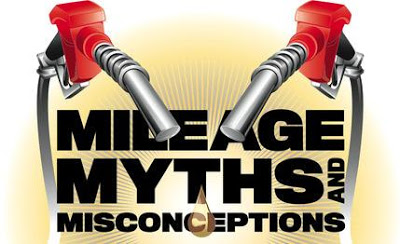 Start a discussion about fuel economy and you are going to get a lot of opinions. For example, Should you use premium fuel when regular is called for? Is it best to buy a small car for maximum fuel mileage? Do older cars get worse gas mileage than brand new ones? Yup, there are no shortage of opinions out there and some people still belief in what are really just myths. We asked the service manager at Ken Garff of West Valley, UT, a Dodge, Chrysler, Jeep, Ram dealer for a hand with this and they gave us their take on a whole lot of fuel economy myths.
Start a discussion about fuel economy and you are going to get a lot of opinions. For example, Should you use premium fuel when regular is called for? Is it best to buy a small car for maximum fuel mileage? Do older cars get worse gas mileage than brand new ones? Yup, there are no shortage of opinions out there and some people still belief in what are really just myths. We asked the service manager at Ken Garff of West Valley, UT, a Dodge, Chrysler, Jeep, Ram dealer for a hand with this and they gave us their take on a whole lot of fuel economy myths.
Myth: A car’s fuel economy decreases with age
If your car is a decade or so old, is it starting to become less efficient? According to the EPA, there is no truth in this. Older cars are not less fuel efficient. One argument you could make is that getting a new, more efficient car will get you higher gas mileage but there is nothing wrong with keeping an older car on the road.
Myth: Letting a vehicle warm up is best for gas mileage
This was true in the old days when cars had carburetors but not today. Today’s cars have fuel injectors and they are designed to be as soon as the car is started. It is true an engine should reach an optimal operating temperature for best fuel economy, but manufacturers recommend letting the engine warm up while you drive.
Myth: Smaller cars get better the fuel economy
This also used to be true years ago but not so much now. Fuel saving technologies including direct injection, turbocharging, low rolling resistant tires and multiple ratio transmissions are making average sedans quite fuel efficient.
Myth: Manual transmissions are more efficient than automatics
Not anymore! Some of the advanced automatic transmissions today actually offer the same gas mileage as the manual versions do. Automatic transmission technology has come a long way. With a large number of gear ratios and lock-up torque convertors, today’s automatics are very efficient devices
Myth: You can count on EPA fuel economy window stickers
The primary purpose of EPA fuel economy estimates is to provide consumers with a uniform, unbiased way of comparing the MPG of different vehicles. In truth, “Your mileage will likely vary.” There are too many variables to account for including how people drive and even the type of gas put in the car.
Myth: It takes more fuel to start a car than allowing it to idle
Well, it depends how long you leave your car idling. Idling may use about a quart of fuel per hour and thus cost 1-2 cents per minute. New engines start very efficiently, especially when warmed. There is little truth to this myth.
Myth: Premium gas yields better economy than regular
There is no benefit when using premium fuel over regular. Premium gas usually has higher octane numbers and is designed for use in higher-compression engines. There is nothing added that boosts the efficiency of the gasoline. If your car is designed to run on regular gas, then use regular gas. It will be cheaper gas too so there’s your fuel economy.
Myth: Air filters need to be like new for best fuel economy
This one sounds like common sense, but the fact is modern fuel injected engines compensate for dirty air filters by reducing fuel to the air-fuel mix. This myth is a holdover from the days of carbureted engines when dirty air filters choked down the airflow.
Myth: There are additives can increase fuel economy
Well, there are plenty of products that claim they do. These are additives to the fuel and some for your engine oil. Independent testing labs have concluded in all cases that we know of that there is little truth to these claims. Save your money and buy more gasoline!

